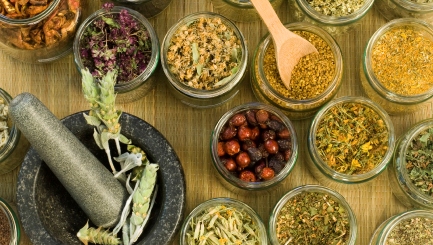Winter diet advice from the Traditional Chinese Medicine
 Changes in the season require a change in diet; a feature that can be found in every world culture. The Chinese speak very clearly of the need to take care of one’s diet when facing the onset of winter. They refer to the practice jinbu, meaning to conserve one’s health and energy by eating nourishing food. Proper practice of jinbu aims to make one strong enough to fight a tiger in the coming year! Very probably, we all need to take instruction from the Chinese in planning our long-term diet according to our overall nutritional needs.
Changes in the season require a change in diet; a feature that can be found in every world culture. The Chinese speak very clearly of the need to take care of one’s diet when facing the onset of winter. They refer to the practice jinbu, meaning to conserve one’s health and energy by eating nourishing food. Proper practice of jinbu aims to make one strong enough to fight a tiger in the coming year! Very probably, we all need to take instruction from the Chinese in planning our long-term diet according to our overall nutritional needs.
Chinese complementary medicine and diet is based on the well-known system of Yin and Yang. All of life alternates between these two extremes, so helping to achieve a balance is the only sensible course for wellbeing. The practice of jinbu aims to reinforce Yin energy, which is cold, dark and wet. The purpose of this is to create an abundance of Yin fluid, which is required in order to store Yang energy. The hot, bright Yang energy is like ignition fuel to be used the following year, but it is only its counterpart Yin that allows it to be stored in the body.
So, what kinds of foods help you to emphasise Yin? Li Yanling, director of the Nutrition Department at Tianjin University of Traditional Chinese Medicine, recommends bao (stewed food) for the cold season. Stew provides hot, soft food, perfect for the needs of the system, and the method of slow-cooking retains all the nutritional value of the original ingredients. This general advice is a useful approach to ensuring the body has the correct winter nutrients. Furthermore, Traditional Chinese Medicine has further advice for the various body types.
Men are advised to protect their kidneys, as harsh cold is known to affect their kidney energy. Beef and mutton stews are recommended in order to fortify these organs. For women, the effects of the cold on skin is likely to be of concern. In winter, many women experience a Yin deficiency, which has a direct effect on the bloodstream, giving a pale and often blemished complexion. Jujube is thought to be an excellent dietary supplement to reinforce Yin and correct blood deficiencies. A Chinese stew containing sweet carrot, jujube, sugarcane and pork makes a kind of sweet stew fully appropriate to women’s winter needs. Finally, children have their own particular needs, especially as they have not yet stored much body fat to rely on. They need to eat high-energy and easily digestible foods. As such, the Chinese recommend chicken for the infant practice of jinbu. They favour a chicken and chestnut stew to provide a delicious source of wellness throughout the winter months.


Comments are closed.